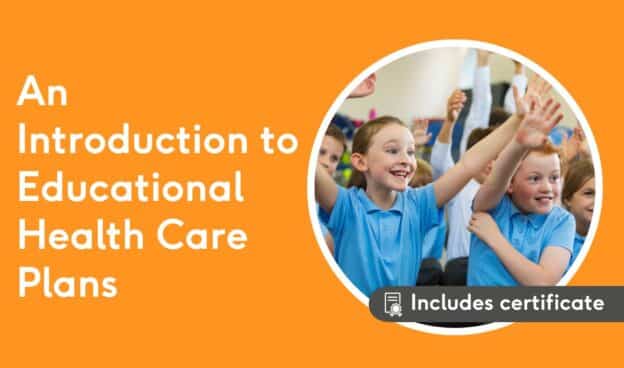This course is an introduction to EHCPs and how they can support your practice as an educator. The text and video below will get you started. The attached materials include a blank EHCP template from the Lancashire Local Authority and then there is a guidance document produced by The Council for Disabled Children. Then take the associated lesson and you will gain your certificate in for this course.
An EHCP (Education, Health, and Care Plan) is a legal document in the United Kingdom that outlines the special educational needs (SEN) and any additional support that a child or young person with disabilities or special needs requires. EHCPs are designed to ensure that children and young people with SEN receive appropriate education and support that is tailored to their individual needs.
Here’s a quick video to introduce you to EHCPs which is produced by The Council for Disabled Children.
Here’s how educators should use EHCPs effectively:
- Understanding the EHCP: Educators should thoroughly read and understand the content of the EHCP for each student with special educational needs. This includes information about the student’s strengths, challenges, specific needs, and the types of support and accommodations they require.
- Individualised Planning: EHCPs are individualised plans. Educators should use the information in the EHCP to create a personalized teaching and support plan for the student. This plan should take into consideration the student’s learning style, preferences, and any recommended strategies.
- Implementing Support: Educators should implement the support and accommodations specified in the EHCP. This might involve providing specialized teaching techniques, adapting materials, offering extra time for tasks, providing assistive technology, or arranging for additional classroom support.
- Regular Review: EHCPs are not static documents. They should be reviewed and updated periodically to reflect the student’s progress and changing needs. Educators should actively participate in these reviews and provide input on the effectiveness of the support strategies being used.
- Collaboration: EHCPs involve collaboration among educators, parents, specialists, and support staff. Educators should work closely with other professionals involved in the student’s education to ensure consistent and effective support across different settings.
- Setting Goals: EHCPs often include specific goals that the student should work towards. Educators should be aware of these goals and track the student’s progress. They can provide targeted interventions and feedback to help the student achieve these goals.
- Monitoring Progress: Regularly monitor the student’s progress toward the goals outlined in the EHCP. Collect data, conduct assessments, and communicate with other team members to evaluate the effectiveness of the support strategies and make necessary adjustments.
- Flexibility: Educators should be flexible in adapting their teaching methods and strategies as needed. The needs of students with EHCPs can change over time, and educators should be prepared to make adjustments to meet those changing needs.
- Promoting Inclusion: EHCPs aim to promote inclusion by ensuring that students with special needs are able to access the curriculum and participate in school activities alongside their peers. Educators should create an inclusive classroom environment that encourages social interaction and learning for all students.
- Advocacy: Educators play a role in advocating for the student’s needs and rights based on the EHCP. This might involve communicating with parents, attending meetings, and collaborating with external professionals to ensure the student’s needs are met effectively.
EHCPs are an essential tool for ensuring that children and young people with special educational needs receive the support they require to succeed in their education. Educators’ active involvement in the implementation and review of EHCPs is crucial for providing effective and inclusive education for these students.


